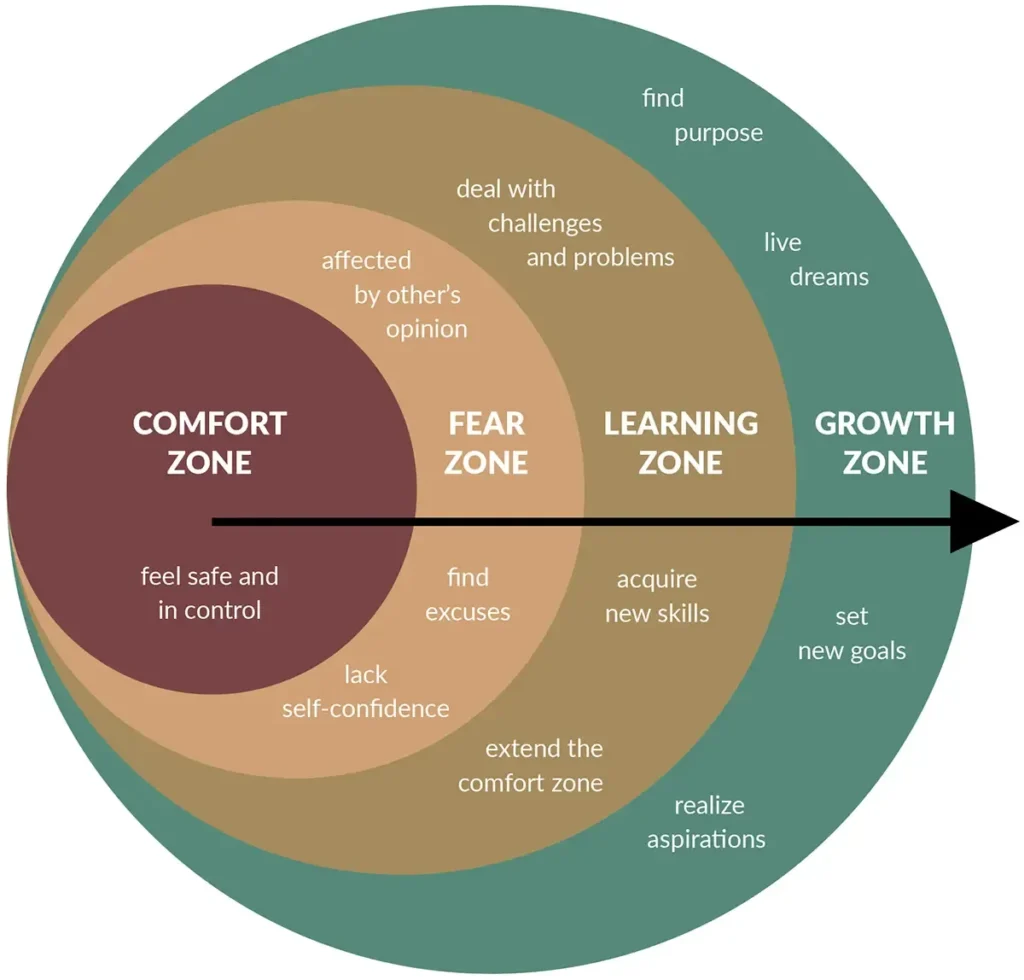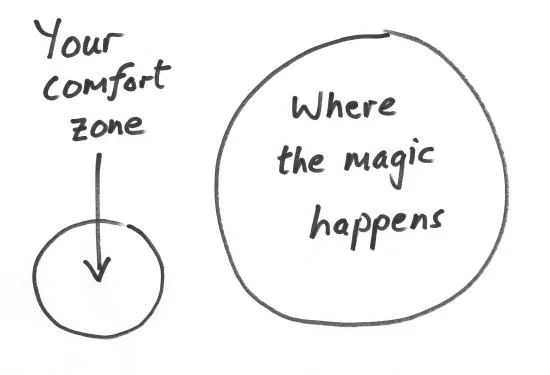In the warmth of our comfort zone, life feels safe and familiar. More often than we care to admit, finding the motivation to leave is hard. But the more we’re stuck in our comfort zone, the more opportunities we miss to fully immerse ourselves in the human experience.
“The comfort zone is a behavioral state within which a person operates in an anxiety-neutral condition, using a limited set of behaviors to deliver a steady level of performance, usually without a sense of risk.”
Learning how to get out of your comfort zone takes willpower and a change in mindset. Each step you take to expand your comfort zone leads to personal growth, learning, and success.
“Growth and comfort don’t coexist” – Ginny Rometty
You’ve definitely been told at various points in your life that you need to break out of your comfort zone. Maybe you’ve been at restaurant and have been nervous to try a new dish, or you’ve been in the same position at the same job for way too many years, ad now it’s time for a change. In any of these cases, it’s probably time to break out I order to really succeed.
Beyond discovering tasty exotic food, studies show that stepping out of your comfort zone leads to greatly increased creativity and the ability to cope with unexpected change and further your success. A study conducted way back in 1908 by two psychologists showed that remaining in a state of comfort ensured steady performance. However, in order to increase or maximize performance levels, we need to be in a space of “optimal anxiety”. This is where we benefit from a little bit of fear.
What makes you comfortable can ruin you. what makes you uncomfortable can be the only way for you to grow.
When leaving the comfort zone, fear doesn’t always equate to being in the panic zone. As the below diagram shows, fear can be a necessary step enroute to the learning and growth zone:

It takes courage to step from the comfort zone into the fear zone. Without a clear roadmap, there’s no way to build on previous experiences. This can be anxiety provoking. Yet preserve long enough, and you enter the learning zone, where you gain new skills and deal with challenges resourcefully.
According to the Yerkes-Dodson Law, an optimal level of pressure or anxiety increases performance, but only up to a point. Too much pressure has the opposite effect, causing someone to panic. Trying to jump too far outside your comfort zone can have the same effect. Doing activities that increase your anxiety too much can have you scurrying even further back into your comfort zone.
The best way to leave your comfort zone is to gradually expand it ad find your optimal level of good stress. Increased performance is just one of the many reasons stepping out of your comfort zone is important. It also helps you find out your true potential, each your goals, and live a more fulfilling life.


Leaving your comfort zone will feel uncomfortable and intimidating at first. Let’s explore a few important tips that will make your transition easier.
- Have fun with it; Leave your ego at the door, and don’t aim for perfection. Instead, have fun, and rediscover the joy of experiencing new things.
- Reframe your outlook; Instead of imagining the worst possible outcome, how about you start imagining the best? Practice visualization techniques and feel the joy of achieving your goals.
- Celebrate each win; Acknowledge your progress, and celebrate your success- big and small.
- Reduce overthinking; Overthinking stops you from taking action and turns everything into a worst-case scenario. Practices like mindful breathing can help reduce negative thinking and anxiety.



Your article helped me a lot, is there any more related content? Thanks!